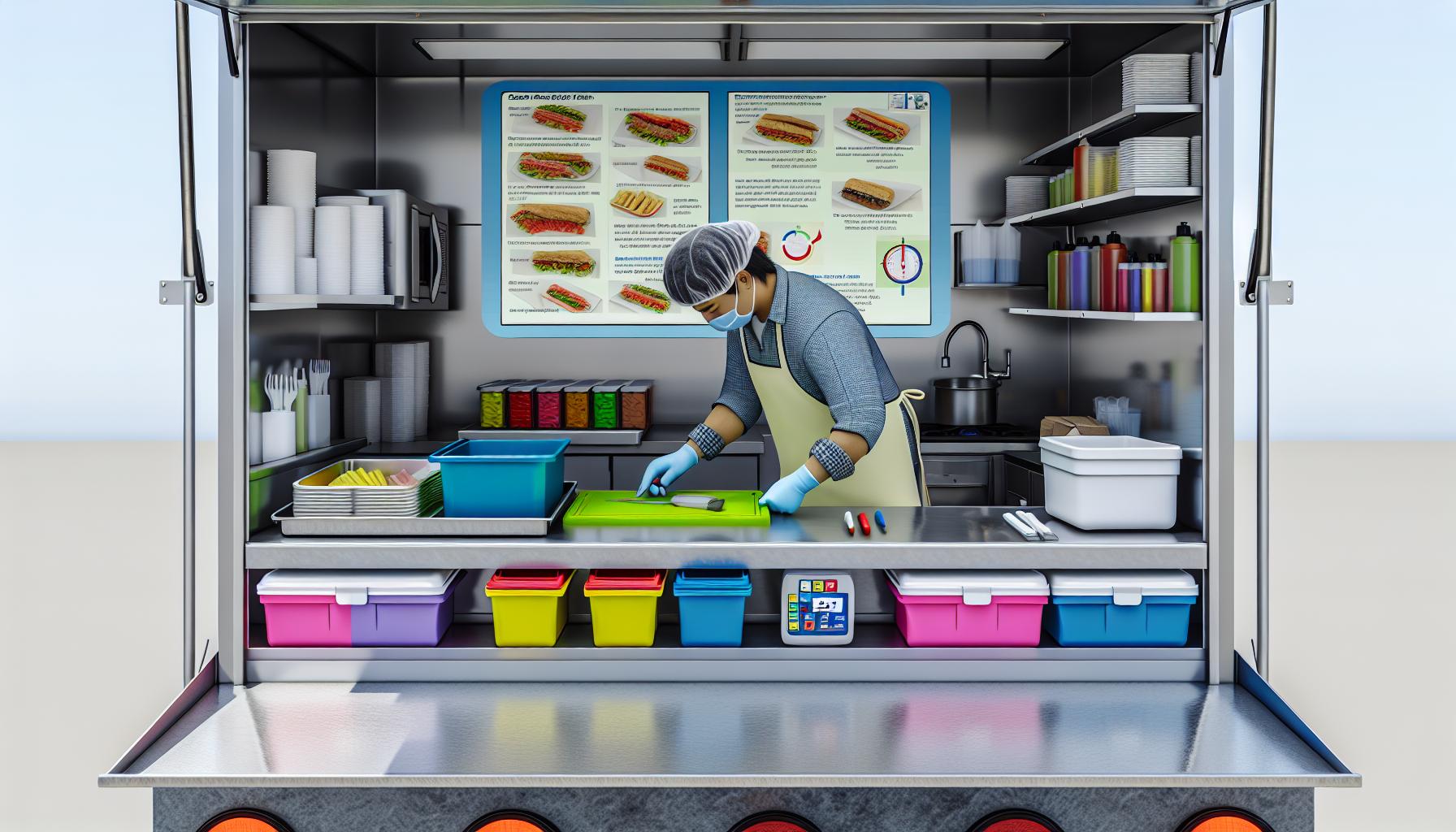Owning a food truck can be a thrilling venture, bringing your culinary creations to the streets and delighting hungry customers with every dish. However, it also comes with its fair share of responsibilities, especially when it comes to food safety regulations. To thrive in this competitive field, food truck owners need to ensure their operations comply with various guidelines designed to protect public health. In this guide, we’ll explore essential tips and best practices on how to handle food truck safety while keeping your dishes delicious and customers safe.
Understand Local Food Safety Regulations
The first step in mastering food truck safety is to familiarize yourself with the specific food safety regulations in your local area. Each state and city has its health codes, and knowing the ins and outs is crucial for your business. These regulations typically include:
- Obtaining the necessary food service permits and licenses.
- Complying with health inspections and certifications.
- Understanding the temperature control requirements for storing and serving food.
- Maintaining proper hygiene and sanitation practices.
A great place to start is your local health department’s website. For instance, the FDA provides a wealth of information on food safety standards and best practices to ensure you’re well-informed. Don’t forget to ask for guidance from fellow food truck owners; many are willing to share their experiences and insights!
Get Your Team Trained
Even if you’re a one-person operation, training is key to food truck safety. If you have employees, ensure they are well-versed in food safety practices. Consider these training options:
- Enroll in food safety courses offered by local health departments or community colleges.
- Complete online food safety training programs like ServSafe, which provide certification upon passing.
- Have regular briefings and refresher courses to keep everyone up to date on current regulations.
Proper training will not only keep your customers safe but can also bolster your brand’s reputation. Customers will appreciate knowing that their food was prepared under the highest safety standards!
Implement a System for Food Storage and Temperature Control
Maintaining safe food storage and ensuring appropriate temperatures while cooking and serving is crucial in ensuring food truck safety. Here are a few key best practices:
- Keep refrigerators and freezers at the proper temperatures (below 41°F for refrigeration, and 0°F for freezing).
- Use a food thermometer to check that cooked food reaches safe internal temperatures (e.g., 165°F for poultry).
- Maintain a rotating inventory to ensure older products are used first (FIFO: First In, First Out).
For example, investing in a digital thermometer can make it easy to quickly check food temperatures, ensuring you stay compliant while also serving consistently delicious dishes. You might find yourself saying, “Just like a chef, I always know my numbers!”
Keep Your Food Truck Clean and Sanitary
Cleanliness is next to godliness—and in food service, it’s next to legality! Here are practical steps to maintain a clean and sanitary food truck:
- Establish a daily cleaning schedule for both inside and outside your truck.
- Utilize food-grade sanitizers and ensure you have separate cleaning materials for different areas (e.g., kitchen vs. dining).
- Ensure handwashing stations are accessible and properly stocked.
Remember, a clean truck is also more inviting to potential customers, and they’ll be much more likely to choose your offerings over someone else’s! Plus, it gives you that extra boost of confidence when you’re serving up deliciousness.
Stay Organized with Documentation
Keeping track of all your food safety documentation might not be the most exciting part of operating a food truck, but it’s essential for proving compliance during inspections. Ensure you maintain:
- Food safety training certificates for all staff.
- Records of temperature logs for food storage.
- Copies of health department permits and inspection reports.
Consider using digital tools to streamline this process. Apps that help with inventory tracking and food safety compliance can save you time and paperwork while keeping you organized. Who knew keeping track of documents could be like a game of Tetris?
Stay Ahead of Recalls and Foodborne Illness Trends
Foodborne illness outbreaks can significantly impact your food truck safety and business reputation. To minimize risks, stay informed about food recalls and outbreaks that can affect your ingredients. Here’s how:
- Subscribe to updates from the CDC and FDA for news on food recalls and safety alerts.
- Use social media to keep your customers informed about your food sourcing practices and safety measures.
When a recall does happen, having a plan in place can save you headaches. For instance, if a supplier recalls an ingredient you use, promptly remove it from your menu and communicate clearly with customers to maintain trust.
Get Insured
Last but certainly not least, securing the right insurance policy is fundamental to robust food truck safety. Common types of insurance to consider include:
- General liability insurance to protect against accidents.
- Commercial auto insurance to cover your food truck.
- Product liability insurance, focusing specifically on food-related incidents.
Being properly insured can mitigate risks and prevent significant financial losses in case of unforeseen circumstances. As they say, it’s better to have it and not need it than to need it and not have it!
Wrap-Up!
Food truck safety may require diligence and attention to detail, but it’s a critical aspect of running a successful mobile food business. By understanding and complying with local food safety regulations, thoroughly training your team, implementing proper storage and cleanliness practices, keeping organized records, staying updated on food safety news, and securing the right insurance, you can create a safe and thriving food truck operation. Remember, a safe kitchen is a happy kitchen—and ultimately, a happy business! Now go out there, serve up safety with a side of deliciousness, and watch your food truck flourish!


